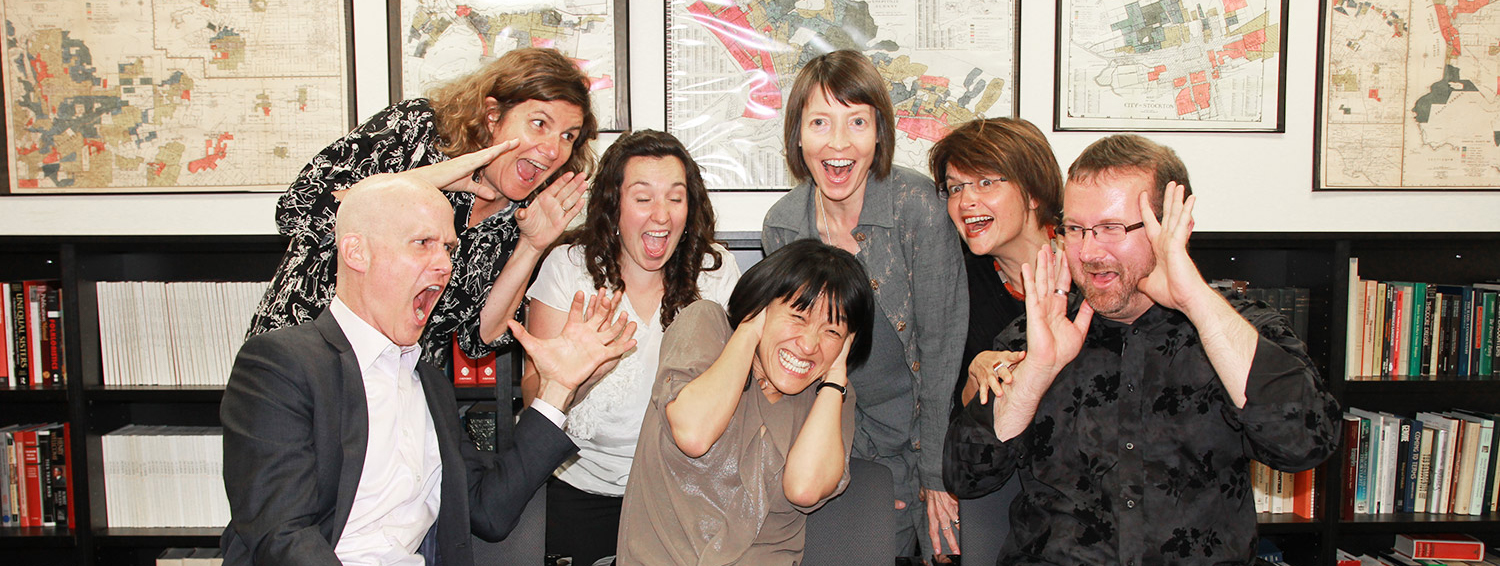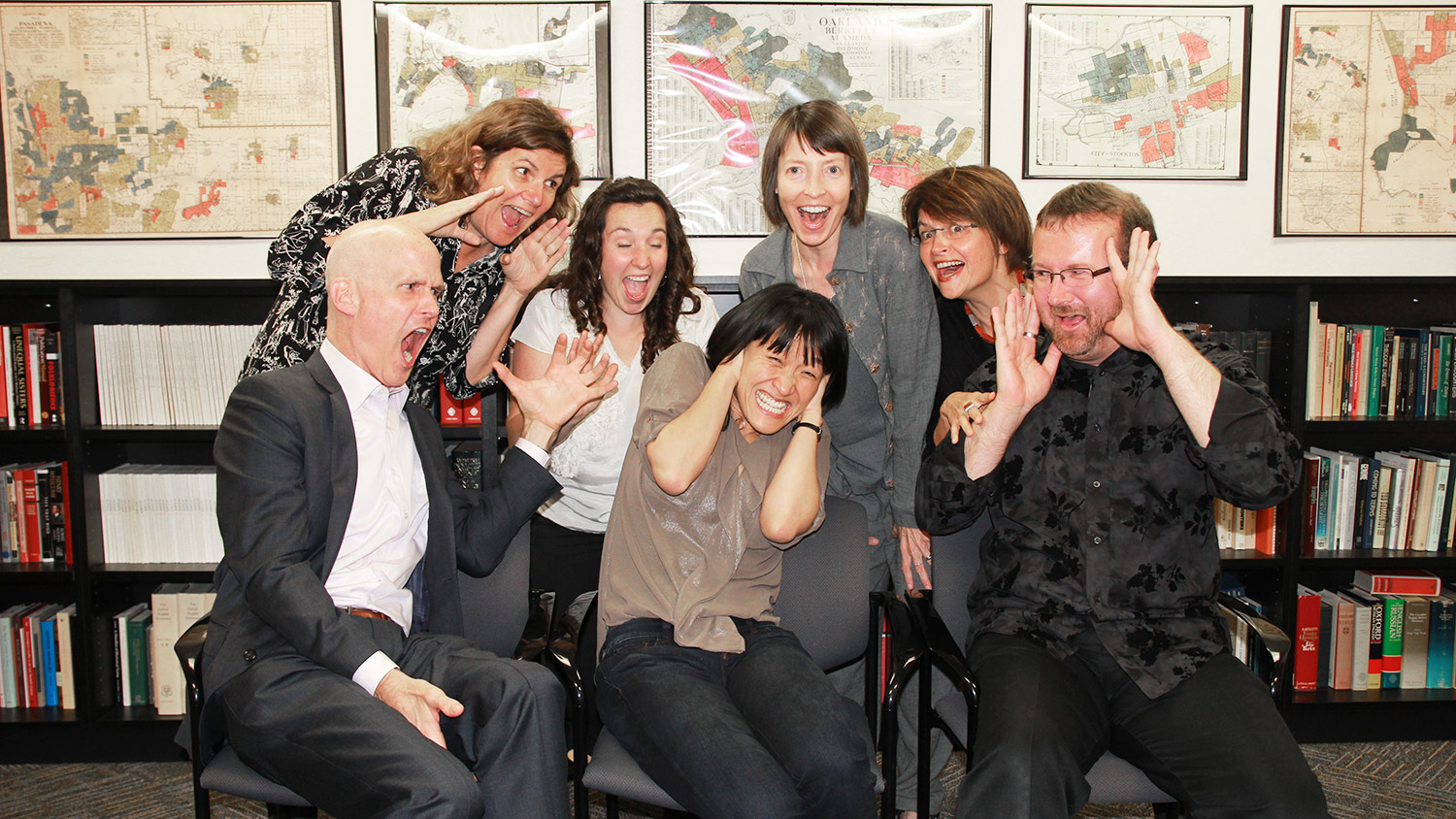Vocal Matters
Caitlin Marshall
Performance Studies
UC Berkeley
Annette Schlichter
Comparative Literature
UC Irvine
Participants
Jonathan Alexander
English
UC Irvine
David Kasunic
Music
Occidental College
Katherine Kinney
English
UC Riverside
Caitlin Marshall
Performance Studies
UC Berkeley
Carole-Anne Tyler
English
UC Riverside
The voice plays a vital role in human ecology. Simultaneously tied to our bodies and entwined with the external environment, the voice exists in a complex braid with multiple physical and socio-cultural formations: voices relate to one another and to their physical environs; they adapt to and are altered by technologies. Because the voice is central to the formation of subjects, rethinking technologies of self through the sonorous, material, and technological components of vocal acts should lead to new insights about the voice’s role in self-constitution, artistic expression, and everyday life. This rethinking should also help us describe the mutual constitution of self and the cultural, social, historical, technological and political as specific registers of the material conditions of subject formation.
Rereading embodiment through the material voice, the research group sought to intervene in current critiques of the construction and perpetuation of identities and differences. It also contributed to the development of perspectives and vocabularies on the epistemologies and ideologies of voice that can aid in cross-disciplinary understanding and research. The group convened a group of scholars who understand the voice as a conjuncture of corporeality and technology, a sounding of power and a strategy of control. The research group ultimately sought to intercede in vocal politics by working toward new analytical frameworks for taking account of the ways in which voices co-implicate and destabilize the categories of nature, culture and society. By engaging in an interdisciplinary critique of the videocentrism of Western thinking, and in a consideration of the voice on its own aural and multi-sensory terms, the research project contributed to a subtle but significant shift in the paradigms of knowledge production within the humanities.


